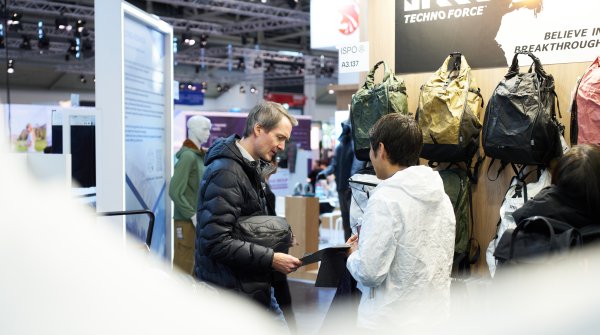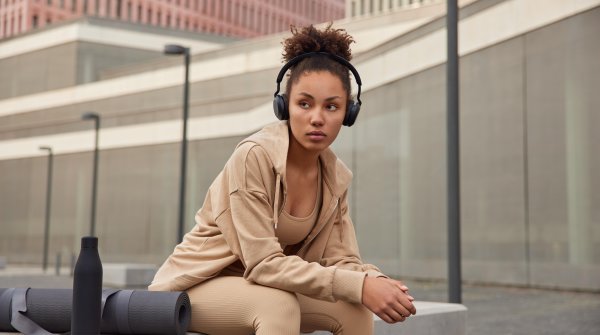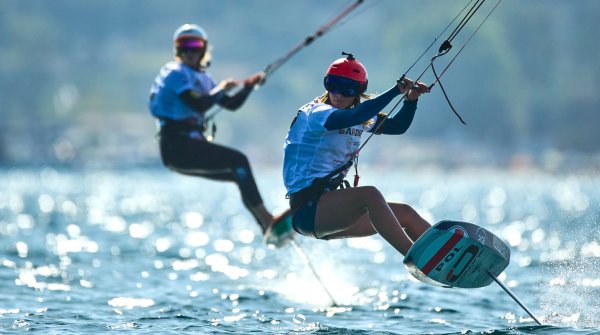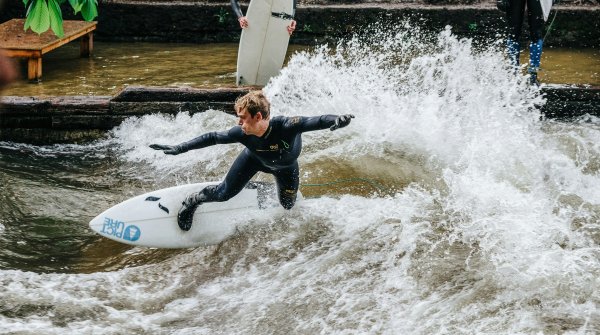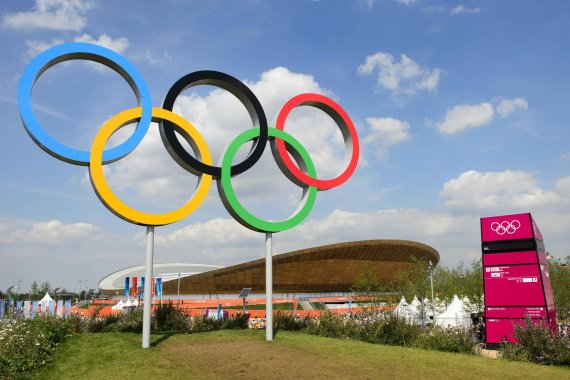
Let's say the 2020 Tokyo Olympics hadn't had to be postponed because of the Corona pandemic. Then the games would probably have started shortly after George Floyd was violently killed by police officer Derek Chauvin kneeling on his neck for minutes. And thus at a time when, under the motto. „Black Live Matters“ especially in the United States, but also around the world, people took to the streets to protest racism and discrimination. Let us now assume, moreover, that in this mood an Olympic champion had shown solidarity with Black Live Matters at the medal ceremony, had worn a T-shirt or held a sign aloft. That Olympic champion would probably have been banned from the Olympics.
And yes, even at the now-delayed Games, any Olympian who shows solidarity with Black Live Matters at the awards ceremony must fear expulsion from the Games. At least, that's how Maximilian Klein of the organization interpreted it „Athletes Germany“which represents more than 1,000 athletes, interpreted the new IOC rules on the subject to Deutsche Welle. „Show Attitude“ so that solidarity with Black Live Matters continues to be undesirable expressions of opinion.
To this day, the most famous example of rigorous IOC action is the 1968 Olympics, when the image of successful sprinters Tommie Smith and John Carlos raising their fists to the sky on the podium in solidarity with the Black Power movement became iconic. Smith, fresh off setting a 200-meter world record, and fellow athlete Carlos were subsequently banned from the Games. The basis was Rule 50.2 of the Olympic Charter: „No form of demonstration or political, religious or racial propaganda shall be permitted at any Olympic site, venue or otherwise.“
That this rule is out of date has been said for a long time by many athletes* around the world and even politicians* would like to see it changed. In fact, the meaning of athletes has also changed a lot since the charter was written many decades ago: Back then, there was a stronger separation in the perception of groups of influence. The churches were responsible for morality, the film and music business for the show, and the athletes for sport.
But for a long time these have been much more – namely role models on various levels beyond sport. Today's sports stars are influencers, have a reach beyond the sports field and express opinions. But should they therefore also get involved in social debates? And if so, how far can they go? And at what point? Many athletes want to convey messages - – some as fighters for social change, others simply as advertisers. The image needs athletes with rough edges – and opinion.
The European Football Championship recently showed how sensitive this question is and how difficult it is to answer. German national goalkeeper Manuel Neuer wore a rainbow captain's armband in solidarity with the LGBTQ community. Briefly, European soccer's governing body UEFA investigated the wearing of the armband for a possible violation. The audit was dropped with no penalties. But when the city of Munich wanted its soccer stadium to be lit up in rainbow colors during Germany's match against Hungary, which has been criticized for having an anti-LGBTQ law, UEFA banned it. The city's planned action was seen as an affront to Hungary.
The example shows that a clear determination is difficult. Those who only want to see one side attack UEFA for the ban. But wasn't it perhaps a wise compromise to allow a single national team captain to make a gesture, but not a host city? After all, the debate about the Hungarian law belongs more to the political arena, and that's where it's taking place – for example, by the European Union and critical voices from federal politics. As we know, the city of Munich nevertheless did not let itself be stopped completely: Although the Allianz Arena did not glow in the LGBTQ colors, the city itself did.
The IOC around its German president Thomas Bach had chosen a diplomatically coolly calculated way after the George Floyd case. The IOC reacted to the ever new demands for a change of the charter in such a way that it passed the ball to the Athletes' Commission. This was in direct response to the George Floyd case. The Director General of the US Olympic Committee, Sarah Hirshland, had been the first to call for changes to the prohibition paragraph. She had formed an athlete-led group, she said, „to challenge the rules and systems of our own organization, including their right to protest“ she wrote militantly to U.S. athletes a year ago, citing the black community's unacceptable pain from the death of her fellow citizen.
At the time, Bach may have taken into account that the Athletes' Commission would not only reflect the attitude of liberal athletes from the USA or Germany, for example – but of athletes from all countries. In any case, a majority of athletes from 185 countries and 41 athletes supported the ban on protests from the Olympic Charter. That the demand for free protest possibilities has a difficult stand, showed in the course of the debate exemplarily also Germany. The – meanwhile resigned – President of the German Olympic Sports Confederation, Thomas Hörmann, had demanded a differentiated debate for the functionary level. „In the current discussion, one must make a very precise distinction between political statements and the support of fundamental goals such as the observance of human rights, which are even specifically named in federation statutes or even the Olympic Charter.“ In contrast, said „Athletes Germany“-representative Klein already at that time, that the athletes „as persons of the public life in the responsibility“ see themselves.
What must not be forgotten: Although the IOC forbids Olympians to take a political stance, it makes an exception for itself. Because – oh miracle – the IOC has often made political decisions in the course of history that have not gone unnoticed by the public. We recall here the urgent request to Saudi Arabia to send female athletes to the competitions as well. The IOC pressure was successful: from 2012, women from the strict Muslim country were also allowed to compete as athletes. Less positively remembered is the treatment of the South African Olympic Team. When the 1936 Olympics were held in Berlin and Adolf Hitler came to power, only a „All-White“...all-white team to compete in the Games. They didn't want to upset any hosts. Years later, that white team led to their exclusion from the Games: South Africa refused to send Black athletes to compete, the IOC banned the country. – under pressure from the world public – from the Games. Politically, oh yes!
But that's not all: the Olympic Games themselves were also often the scene of politics. During the Cold War, the USA and the former Soviet Union boycotted the Games in each other's countries. And the 1972 Olympic assassination in Munich was also politically motivated: Palestinian terrorists murdered eleven members of the Israeli team. And most recently: the international protest against the Olympic Games in China due to human rights violations.
So it is not that easy to separate the Olympics from political decisions and opinions. Perhaps this is why the IOC has now dared to make a minimal change to its charter.
But what has now emerged is a compromisethat is closer to the official Hörmann than to the athlete representative Klein and closer to the position of the football association UEFA than to Manuel Neuer. In concrete terms, sportsmen and sportswomen are officially allowed to express themselves politically in Tokyo – but according to fixed rules. They are allowed to express themselves in the interview zones of the competition venues, at press conferences, in interviews, at team meetings or via social networks. At the competition venue – i.e. in the Olympic stadium and the other sports venues – they are only allowed to make political statements or gestures, as long as they are „are not directly or indirectly directed against people, countries, organisations and/or their dignity“ and „are not disruptive“for example in the preparation of other athletes or teams for the competition.
The interpretation of these rules are not likely to be straightforward in the event of a dispute. Maximilian Klein of „Athletes Germany“ says in the Deutsche Welle, „the supposed relaxation of Rule 50 falls far short of our expectations. They continue to miss the core problem of the sweeping restriction of freedom of expression.“ The IOC has not adequately resolved the basic problem, but now determines the place and time of expressions of opinion, he said. Rob Koehler, head of the international alliance Global Athletes, tweeted that the IOC had given a new lesson in PR. „They say they changed the rules but didn't actually do it.“
An event just days before the opening of the Olympic Games proved how lazy the compromise is. Before the opening game of the female soccer players' Olympic tournament, the teams from Great Britain and Chile dared a political show: They got on their knees to demonstrate against racism. The referees also took part. The USA and Sweden followed suit, and the players got on their knees before their game.
For IOC President Thomas Bach, the situation was clear: "It is allowed, it is not a violation of rule 50," he said later on in Tokyo. So is the weakening of the charta already working? It works like that, one could say. Because the action was mentioned on social media and on the websites of the Olympic Games. The action was very well tolerated, but welcomed - it can be argued about. According to rumors, the IOC banned sharing the images on social media, the Guardian reported.
At least a bad aftertaste remains, even if the pictures of the teams went around the world. By the way: A day later, the IOC also gave in and announced that it wanted to share the pictures on its social media channels. "Such moments are also part of the Olympics."
Shortly before the start of the Games, the IOC was persuaded to take a first mini-step: the Olympic oath was adapted to the new Olympic standard – to set an example for gender equality. In future, the oath will be taken by six people instead of three. This is to guarantee a balance of the sexes. In future two athletes, two coaches and two judges will take the oath on behalf of all participants.
„We Olympians are role models and ambassadors. We stand together to send a powerful message of equality, inclusion, solidarity, peace and respect to the world.“, said the Chair of the IOC Athletes' Commission, Kirsty Coventry. „The oath speakers selected for the Tokyo 2020 Olympic Games are fully gender parity and will take the Olympic oath on behalf of all Olympians, judges, coaches and officials they represent, in the true spirit of solidarity .“ The best news is that the content of the oath has also been adjusted: Henceforth, it will also refer to solidarity, inclusion, equality and anti-discrimination.
And because the IOC was in such a political mood, there was another change on top: from now on, each country is allowed to name a female as well as a male flag bearer for the opening ceremony. It was about time, because – you could say – finally there is gender parity at the Olympics. In Tokyo, 49 percent of all participants are female for the first time.
So it seems that the issue of equality is one that the IOC is happy to get involved in. Other political activities – it's okay. It will take time. And patience – especially with the Olympic athletes.
But there is still hope for some political stance: because the athletes have many levels in which they are allowed to express themselves critically politically beyond the competitions during the Olympic Games without having to fear punishment. Whether Allyson Felix with her own sneaker brand or Sarah Voss in a body suit.: Anyone who knows and observes the skillful PR appearances of a whole host of Olympians can be sure that they will get away with their opinions. And there is one more thing: If an Olympic champion actually chooses a protest that can lead to an exclusion from the competition according to the rules, the IOC will probably think twice about such a step. Because that is also the lesson of the prohibition paragraph: The 1968 gesture was only remembered to this day because of the exclusion of Smith and Carlos.

 Sports BusinessSki Mountaineering Goes Olympic: What Milano-Cortina 2026 Means
Sports BusinessSki Mountaineering Goes Olympic: What Milano-Cortina 2026 Means
- ISPO awards
- Mountain sports
- Bike
- Design
- Retail
- Fitness
- Health
- ISPO Job Market
- ISPO Munich
- ISPO Shanghai
- Running
- Brands
- Sustainability
- Olympia
- OutDoor
- Promotion
- Sports Business
- ISPO Textrends
- Triathlon
- Water sports
- Winter sports
- eSports
- SportsTech
- OutDoor by ISPO
- Heroes
- Transformation
- Sport Fashion
- Urban Culture
- Challenges of a CEO
- Trade fairs
- Sports
- Find the Balance
- Product reviews
- Newsletter Exclusive Area
- Magazine

